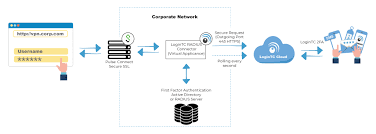The Importance of Secure SSL VPN
In today’s digital age, the need for secure communication over the internet has never been more critical. One technology that plays a vital role in ensuring secure data transmission is Secure Socket Layer Virtual Private Network (SSL VPN).
SSL VPN provides a secure way for users to access resources on a private network remotely through encrypted connections. By using SSL encryption protocols, SSL VPNs protect data from potential eavesdropping and cyber threats, making them an essential tool for businesses and individuals alike.
One of the key benefits of SSL VPN is its versatility. Unlike traditional VPNs that require dedicated client software, SSL VPN can be accessed through a standard web browser, making it convenient for users to connect securely from any location.
Furthermore, SSL VPNs offer granular access control, allowing administrators to define specific user permissions based on their roles and responsibilities. This helps in ensuring that sensitive information remains protected and only accessible to authorised individuals.
Another advantage of SSL VPN is its compatibility with various devices and operating systems. Whether you are using a desktop computer, laptop, tablet or smartphone, SSL VPN ensures secure connectivity across different platforms.
Overall, Secure SSL VPN is an indispensable tool for maintaining data privacy and security in today’s interconnected world. By implementing SSL VPN technology, organisations and individuals can enjoy peace of mind knowing that their sensitive information is safeguarded against cyber threats.
Seven Essential Tips for Enhancing the Security of Your SSL VPN
- Ensure SSL VPN is configured to use strong encryption algorithms.
- Regularly update SSL VPN software to patch any security vulnerabilities.
- Implement multi-factor authentication for an added layer of security.
- Restrict access to SSL VPN only to authorised users and devices.
- Monitor SSL VPN traffic for any suspicious activity or anomalies.
- Use a reliable SSL certificate from a trusted Certificate Authority.
- Educate users on best practices for using SSL VPN securely.
Ensure SSL VPN is configured to use strong encryption algorithms.
When setting up a Secure SSL VPN, it is crucial to ensure that the configuration includes the use of strong encryption algorithms. By implementing robust encryption protocols, such as AES (Advanced Encryption Standard) or RSA (Rivest-Shamir-Adleman), you can significantly enhance the security of your VPN connection. Strong encryption algorithms help protect sensitive data from potential interception and ensure that communication over the SSL VPN remains confidential and secure. It is essential to prioritise the use of strong encryption algorithms in your SSL VPN configuration to bolster its effectiveness in safeguarding your online activities and information.
Regularly update SSL VPN software to patch any security vulnerabilities.
It is crucial to regularly update your SSL VPN software to patch any security vulnerabilities that may be discovered. By staying up-to-date with the latest software updates, you ensure that your SSL VPN remains resilient against potential threats and exploits. These updates often include patches for known security vulnerabilities, strengthening the overall security of your network and protecting your data from malicious actors. Keeping your SSL VPN software updated is a proactive measure that helps to maintain a secure and reliable connection for remote access to sensitive information.
Implement multi-factor authentication for an added layer of security.
To enhance the security of your Secure SSL VPN setup, consider implementing multi-factor authentication. By requiring users to provide two or more forms of verification before accessing the VPN, such as a password and a unique code sent to their mobile device, you add an extra layer of protection against unauthorised access. Multi-factor authentication significantly reduces the risk of account breaches and strengthens the overall security posture of your SSL VPN system.
Restrict access to SSL VPN only to authorised users and devices.
To enhance the security of your SSL VPN, it is crucial to restrict access to authorised users and devices only. By implementing strict access controls, such as user authentication and device verification, you can prevent unauthorised individuals from gaining entry to your network. This proactive measure ensures that sensitive data transmitted through the SSL VPN remains protected and only accessible to those with legitimate credentials, thus reducing the risk of potential security breaches.
Monitor SSL VPN traffic for any suspicious activity or anomalies.
It is crucial to monitor SSL VPN traffic for any suspicious activity or anomalies to maintain a secure network environment. By regularly monitoring SSL VPN traffic, administrators can quickly detect any unusual patterns or behaviours that may indicate a potential security threat. This proactive approach allows for timely investigation and response to mitigate risks and safeguard sensitive data from potential cyber attacks. Regular monitoring of SSL VPN traffic is an essential practice in ensuring the integrity and security of a network infrastructure.
Use a reliable SSL certificate from a trusted Certificate Authority.
When setting up a Secure SSL VPN, it is crucial to use a reliable SSL certificate from a trusted Certificate Authority. By obtaining an SSL certificate from a reputable source, you ensure that the encryption protocols used to secure your VPN connection are strong and trustworthy. This not only enhances the security of your data transmission but also instills confidence in users that their information is protected by a validated and legitimate certificate authority. Choosing a trusted SSL certificate is a fundamental step in establishing a secure SSL VPN environment that prioritises data integrity and confidentiality.
Educate users on best practices for using SSL VPN securely.
It is crucial to educate users on best practices for using SSL VPN securely to maximise its effectiveness in safeguarding data and privacy. By raising awareness about the importance of strong password management, avoiding public Wi-Fi networks when accessing SSL VPN, and being cautious of phishing attempts, users can play a proactive role in enhancing the security of their remote connections. Regular training sessions and clear guidelines on secure SSL VPN usage can empower users to make informed decisions and minimise the risk of potential security breaches.

